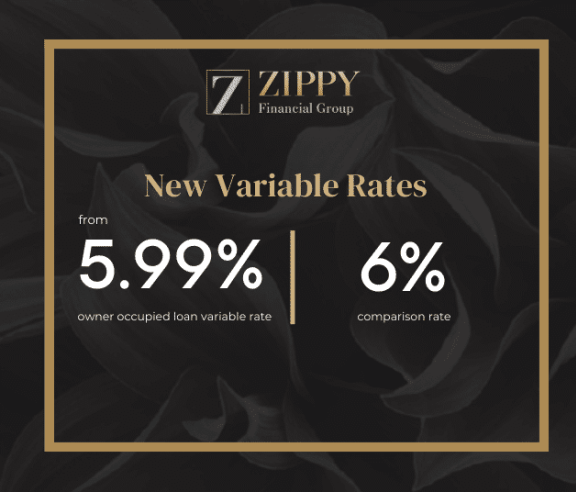Modern Solutions to Housing Affordability: A Comprehensive Guide

Housing affordability remains a critical issue in today's economy. With rising property prices and changing market dynamics, finding affordable housing solutions has become more challenging than ever. This guide explores modern approaches to improving housing affordability, offering insights for policymakers, stakeholders, and potential homebuyers.
Current State of Housing Affordability
The landscape of housing affordability in Australia is marked by increasing property prices and a competitive market. Factors such as low interest rates, urbanization, and demographic shifts have contributed to this trend, making affordable houses harder to come by for many Australians.
Revisiting Government Recommendations
The original report presented to the federal parliament outlined 16 recommendations to tackle housing affordability. These ranged from tax reforms, such as replacing stamp duty with land tax, to innovative financing models like using superannuation for home loans. Assessing the implementation and impact of these recommendations is crucial in understanding their effectiveness.
Innovative Approaches to Housing Affordability
Innovative solutions are key to addressing the housing affordability crisis. Sustainable urban planning that increases housing density in under-utilized areas, community housing projects, and leveraging technology for affordable housing development are some of the approaches gaining traction. These solutions aim to create a more inclusive housing market.
The Role of Private Sector and Community Initiatives
Private sector and community-led initiatives have shown promise in improving housing affordability. From developing affordable rental models to building community housing, these initiatives complement government efforts and provide practical solutions to housing challenges.
Policy Reforms and Future Directions
Looking ahead, policy reforms play a pivotal role in shaping the future of housing affordability. This includes revising planning regulations, incentivizing affordable housing development, and exploring new funding models. Learning from successful international housing models can offer valuable insights for future policy directions.
Practical Tips for Homebuyers
For individuals struggling with housing affordability, understanding the market and leveraging available resources is key. This includes taking advantage of government grants and schemes designed to help first-time buyers and those seeking affordable houses.
Call to Action for Policymakers and Stakeholders
Addressing housing affordability requires a collaborative effort. Policymakers, industry stakeholders, and community organizations must work together to implement effective solutions. This collaborative approach is essential for creating a more balanced and accessible housing market.
Collaborative Solutions for Affordable Housing
- Advocate for policy reforms like incentivizing affordable housing and streamlining approval processes.
- Encourage industry engagement in affordability solutions through innovative construction and sustainable practices.
- Highlight community organizations' role in fostering initiatives like community land trusts and cooperative housing.
Data-Driven Decision-Making
- Emphasize using data for effective housing policies, including analytics for identifying affordability challenges.
- Advocate for transparency in market trends through regular reporting on housing prices, rental rates, and demographics.
- Suggest involving experts in urban planning, economics, and housing development for valuable insights.
Public Awareness and Advocacy
- Stress the importance of public awareness campaigns to educate citizens about housing challenges and solutions.
- Support community advocacy groups focused on affordable housing to ensure diverse voices are heard.
- Call for inclusive decision-making processes addressing unique challenges faced by different demographic groups.
Monitoring and Adaptation
- Advocate for regular assessment of policy impacts and data-driven adjustments for ongoing effectiveness.
- Emphasize flexibility in approaches to housing affordability based on changing conditions.
- Encourage learning from successful case studies and best practices to inform future strategies.
Addressing housing affordability is a multifaceted challenge that demands a comprehensive approach. Incorporating modern solutions and fostering collaboration among stakeholders, including the expertise of mortgage brokers and financial planning, can pave the way for a future where affordable housing is accessible to all.
Frequently Asked Questions
What are the current trends in housing affordability?
Current trends include rising property prices, fluctuating interest rates, and evolving market dynamics, which have made finding affordable housing more challenging.
How can I stay informed about changes in the housing market?
Staying informed involves researching local market trends, following economic news, and possibly consulting with real estate professionals to understand the latest developments in housing affordability.
What innovative approaches can improve housing affordability?
Innovative approaches include sustainable urban planning to increase housing density, community housing projects, and leveraging technology to develop affordable housing solutions.
What policy reforms are needed to address housing affordability?
Policy reforms may include revising planning regulations, incentivizing affordable housing development, and exploring new funding models to effectively address housing affordability issues.
How can policymakers and stakeholders collaborate to improve housing affordability?
Collaboration involves joint efforts in implementing effective solutions, sharing resources, and fostering partnerships between government, private sector, and community organizations.
Where can I find resources for further reading on housing affordability?
Resources can be found through real estate websites, economic forums, government housing agencies, and financial advisory services.
Phone: 1300 855 022
Zippy Financial is an award-winning mortgage brokerage specialising in home loans, property investment, commercial lending, and vehicle & asset finance. Whether you are looking to buy your first home, refinance or build your property investment portfolio, the team at Zippy Financial can help find and secure the right loan for you and your business.
About the Author:
Louisa Sanghera is an award-winning mortgage broker and Director at Zippy Financial. Louisa founded Zippy Financial with the goal of helping clients grow their wealth through smart property and business financing. Louisa utilises her expert financial knowledge, vision for exceptional customer service and passion for property to help her clients achieve their lifestyle and financial goals. Louisa is an experienced speaker, financial commentator, mortgage broker industry representative and small business advocate.
Connect with Louisa on Linkedin.
Louisa Sanghera is a Credit Representative (437236) of Mortgage Specialists Pty Ltd (Australian Credit Licence No. 387025).
Disclaimer: This article contains information that is general in nature. It does not take into account the objectives, financial situation or needs of any particular person. You need to consider your financial situation and needs before making any decisions based on this information. This article is not to be used in place of professional advice, whether business, health or financial.













